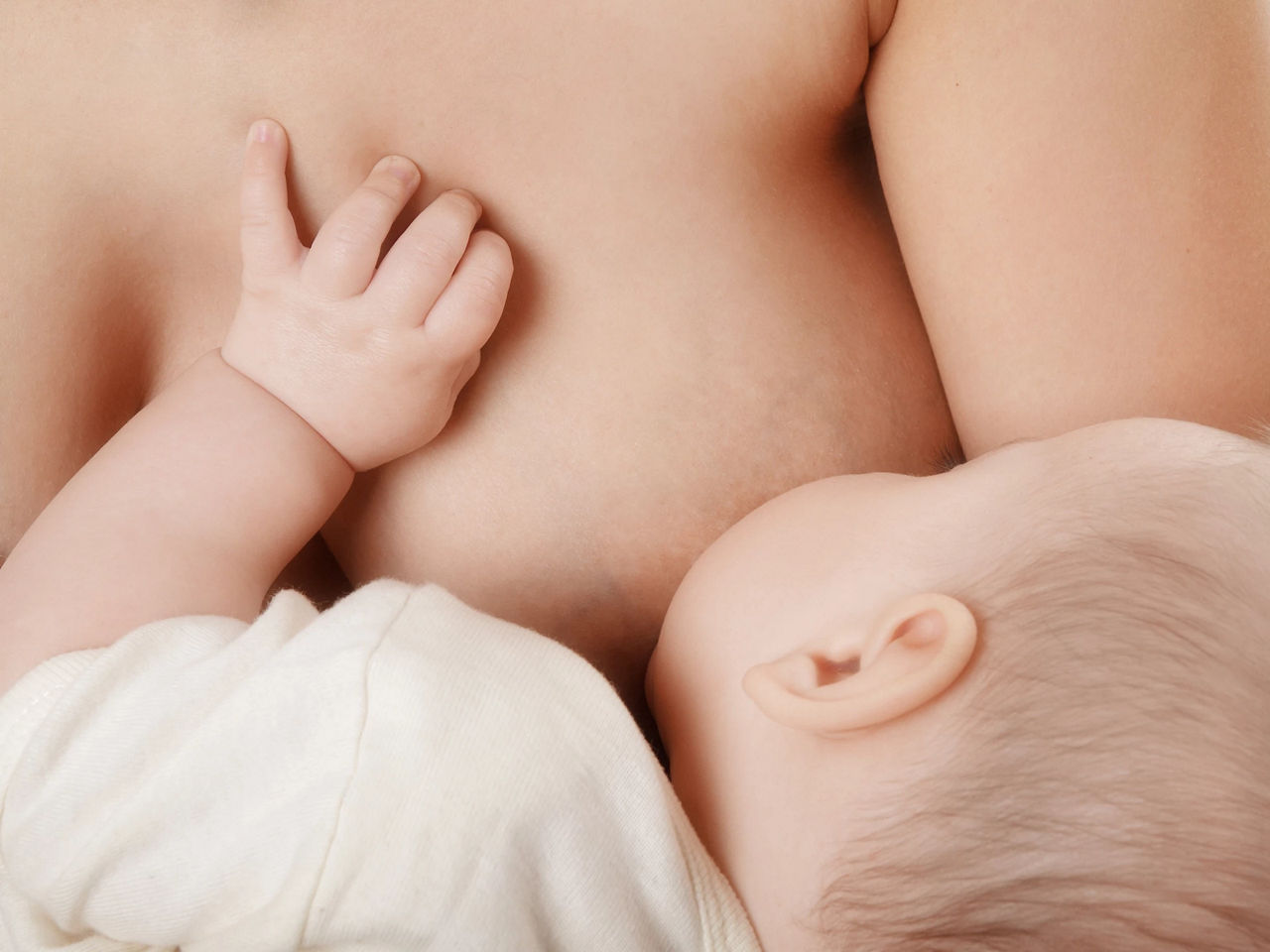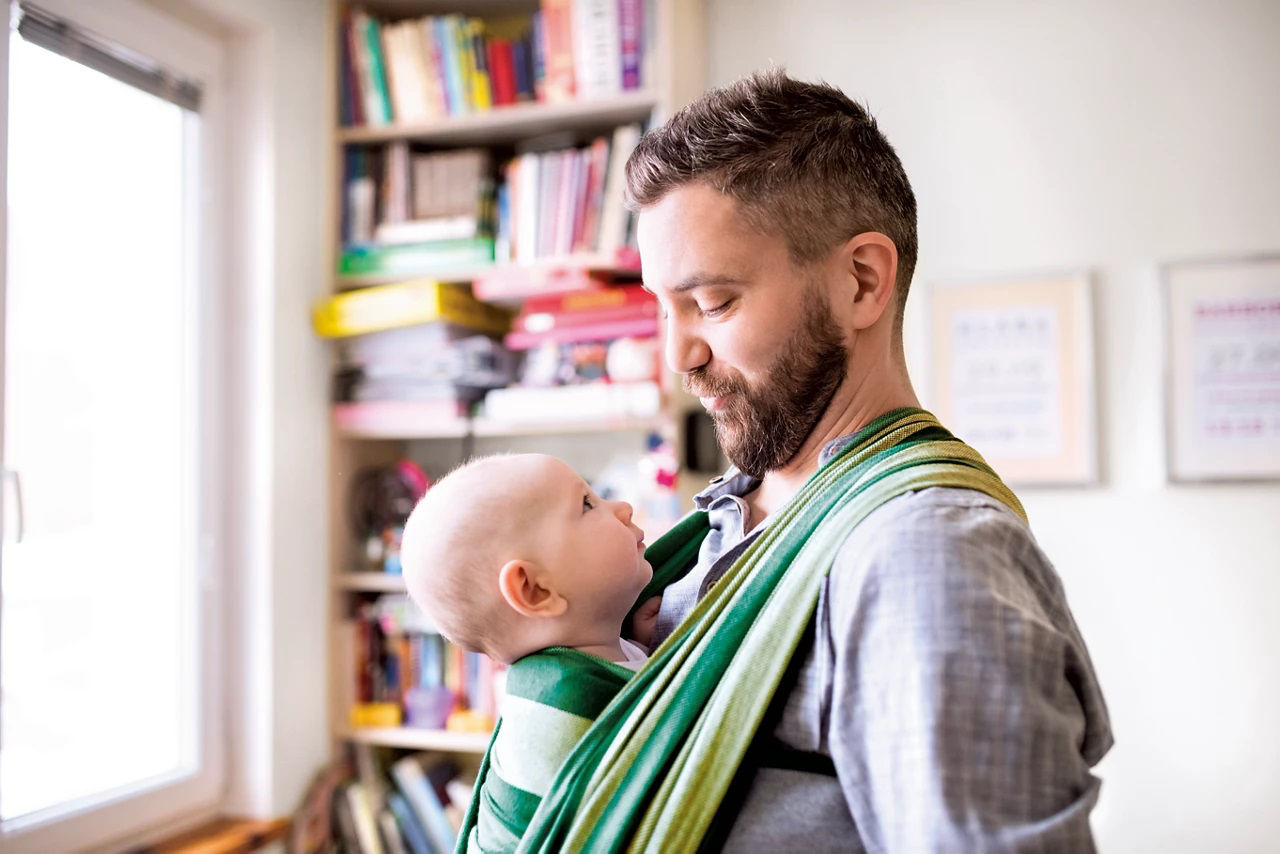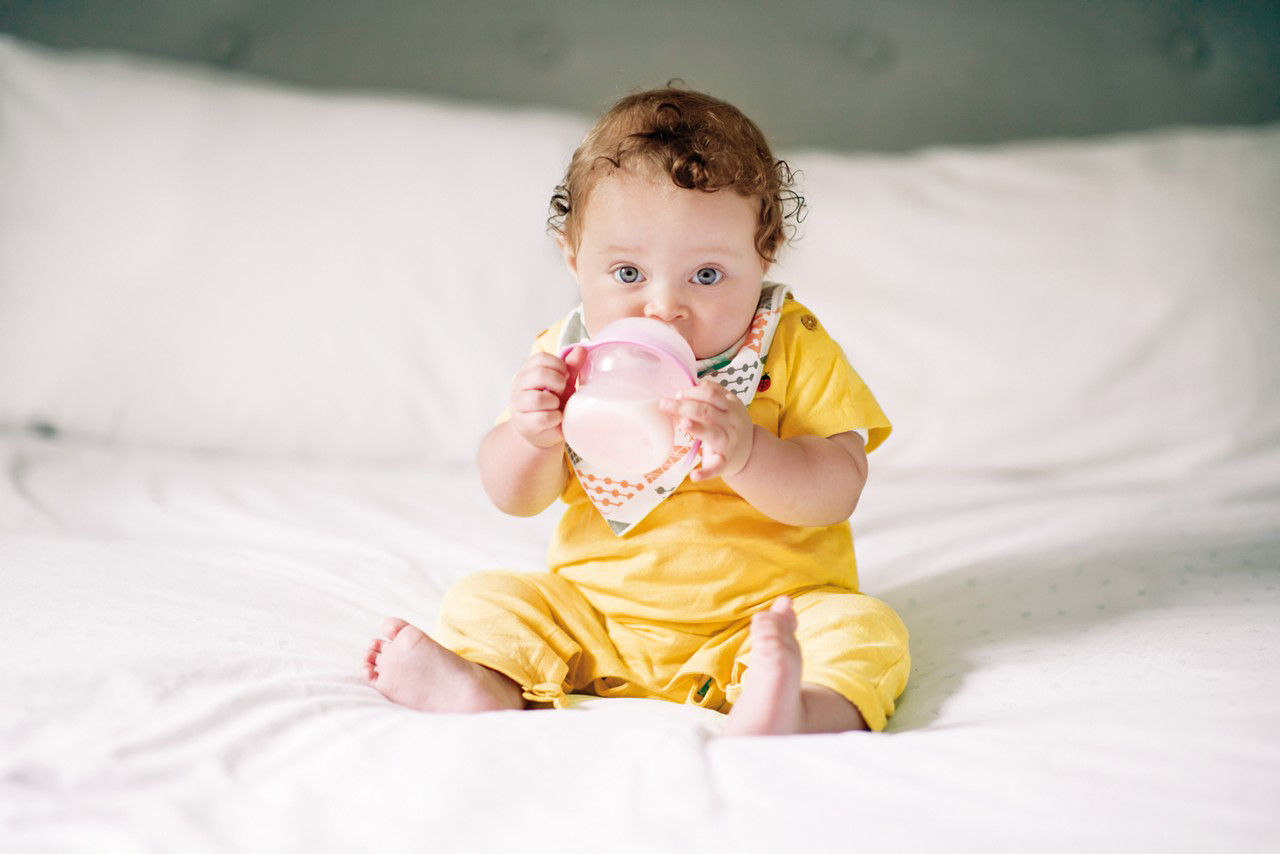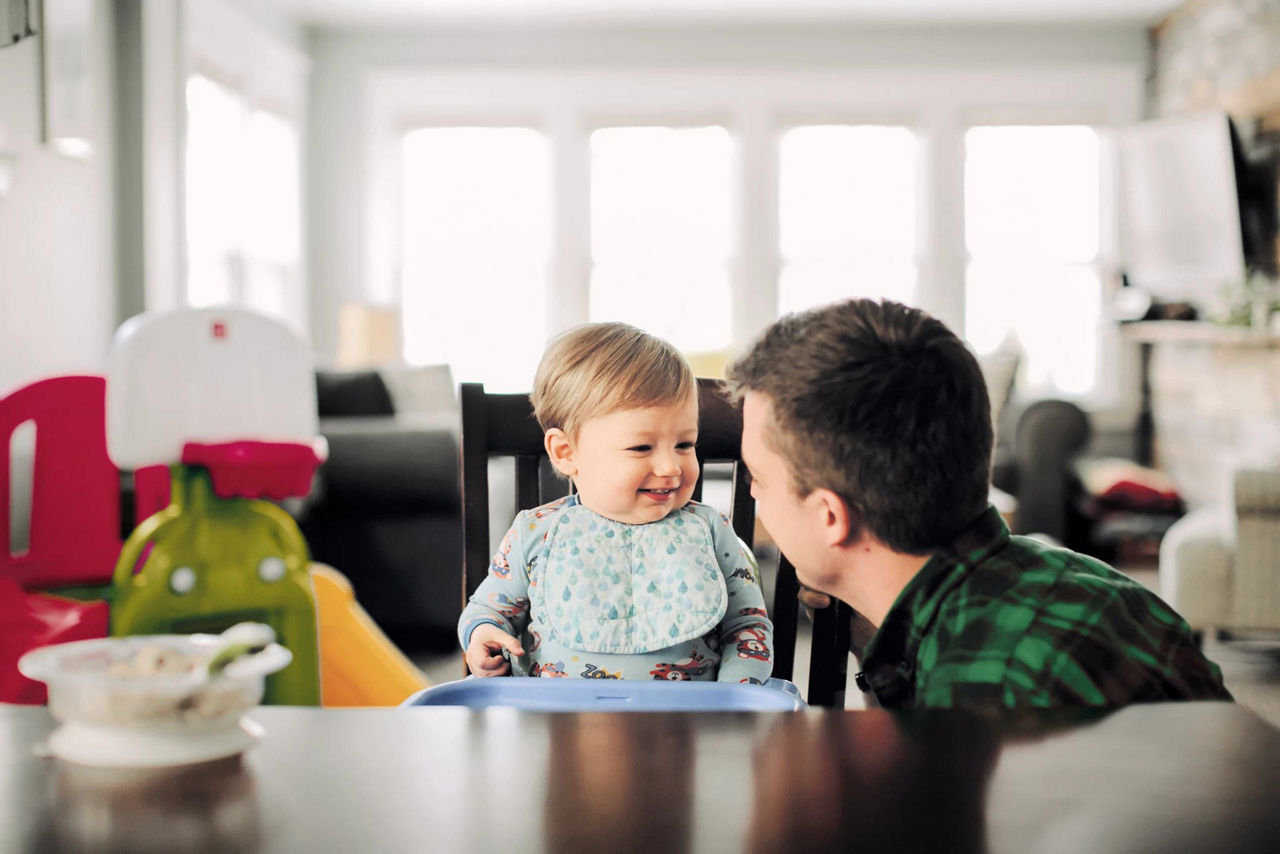Free weaning plan - Register here
Switching from breast to bottle
Changing from breast to bottle is a big decision – physically and emotionally. And once the switch has been made, it’s very difficult to reverse.
If you want to move to bottle-feeding, give yourself plenty of time. Your breasts stop making milk gradually, and it can take up to a week for them to adjust to dropping just one feed! It’s best to switch over one feed at a time, to give your breasts time to adjust and stop them becoming too swollen or engorged. If your breasts feel as if they’re full to bursting, you can always express some milk to relieve the pressure.
When's the best time to switch?
The best time to introduce bottle-feeding is at some point after breastfeeding is established at around six to eight weeks.
Getting their baby used to bottles can be a big worry for mums. But the more relaxed you are about switching to bottle-feeds, the more relaxed your baby will be!
To prepare for switching, make sure you have all the equipment you need: bottles, teats, sterilisers etc., and read the instructions for making up your feeds carefully.
Helping your baby adjust to bottle-feeding
Not every baby takes to bottle-feeding straightaway. If they’re reluctant to give up the breast, there are some things you can do to help them along:
- Express some breastmilk to bottle-feed with – to help your baby get used to feeding from a bottle.
- Try different temperatures – some babies will drink from a bottle at body temperature like breastmilk, others prefer it cool or at room temperature.
- Experiment with different teats – your baby might find it easier with a different type or make, such as a latex teat.
- Express some breastmilk on to the teat of the bottle to get the sucking reflex started.
- Feed your baby while they’re propped up somewhere safe, maybe strapped into a bouncy chair, rather than in your arms, or ask someone else to feed your baby for a while when you have left the room – the further away they are from your breasts the less they can smell or see them!
- Distract your baby with a toy or music – if you’re lucky they may not even notice they’re feeding from a bottle!
- If your baby is over six months, try feeding from a beaker or a training beaker – many mums find this works better if their baby is reluctant to use a bottle.
- Relax – this might be easier said than done when you have a hungry, frustrated baby, but if you’re relaxed it will help them settle down too.
- Try, try and try again! It might not feel like it’s ever going to happen, but your baby should get used to feeding from a bottle eventually.
If you’ve tried everything and your baby is still not happy feeding from a bottle, speak to your health visitor or give us a call.
Bonding with a bottlefed baby
Babies love the closeness of breastfeeding. So make sure you give your baby lots of skin contact when you’re bottle-feeding them. Make plenty of eye contact, and don’t be too shy to talk and sing to them too!
Important Notice
Breastfeeding is best for babies and provides many benefits. It is important that, in preparation for and during breastfeeding, you eat a varied, balanced diet. Combined breast and bottle feeding in the first weeks of life may reduce the supply of your own breastmilk, and reversing the decision not to breastfeed is difficult. The social and financial implications of using an infant formula should be considered. Improper use of an infant formula or inappropriate foods or feeding methods may present a health hazard. If you use an infant formula, you should follow manufacturer’s instructions for use carefully – failure to follow the instructions may make your baby ill. Always consult your doctor, midwife or health visitor for advice about feeding your baby.

Join the C&G baby club today
- Weekly emails with tips and advice for your stage
- 1-to-1 support from our dedicated Careline team, 8.30am - 5.30pm Monday to Friday.

Join the C&G baby club today
- Weekly emails with tips and advice for your stage
- 1-to-1 support from our dedicated Careline team, 8.30am - 5.30pm Monday to Friday.
More from baby
Baby topics
Any more questions?
Our specialist baby advisors and experienced mums are here to talk and ready to help whenever you need them. You can call us or reach us on Live Chat 8.30am-5.30pm Monday-Friday.
Phone
Call 1800 570 570
FAQs
For all the latest information
Email Us
Send us an email
8.30 am - 5.30pm Monday-Friday




